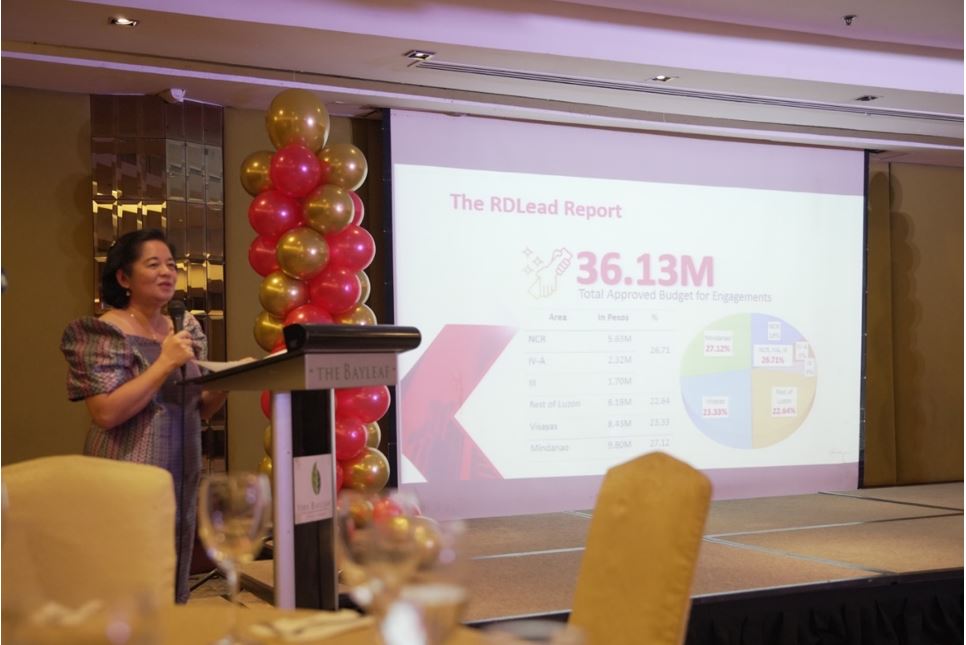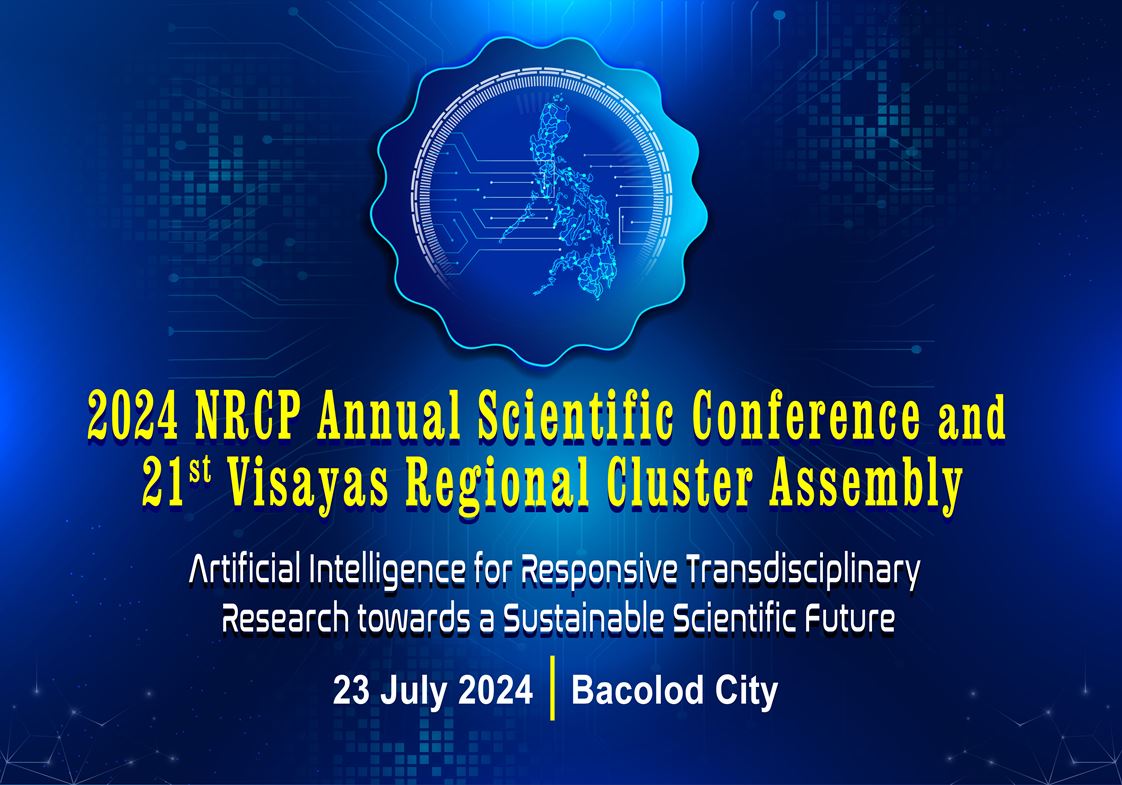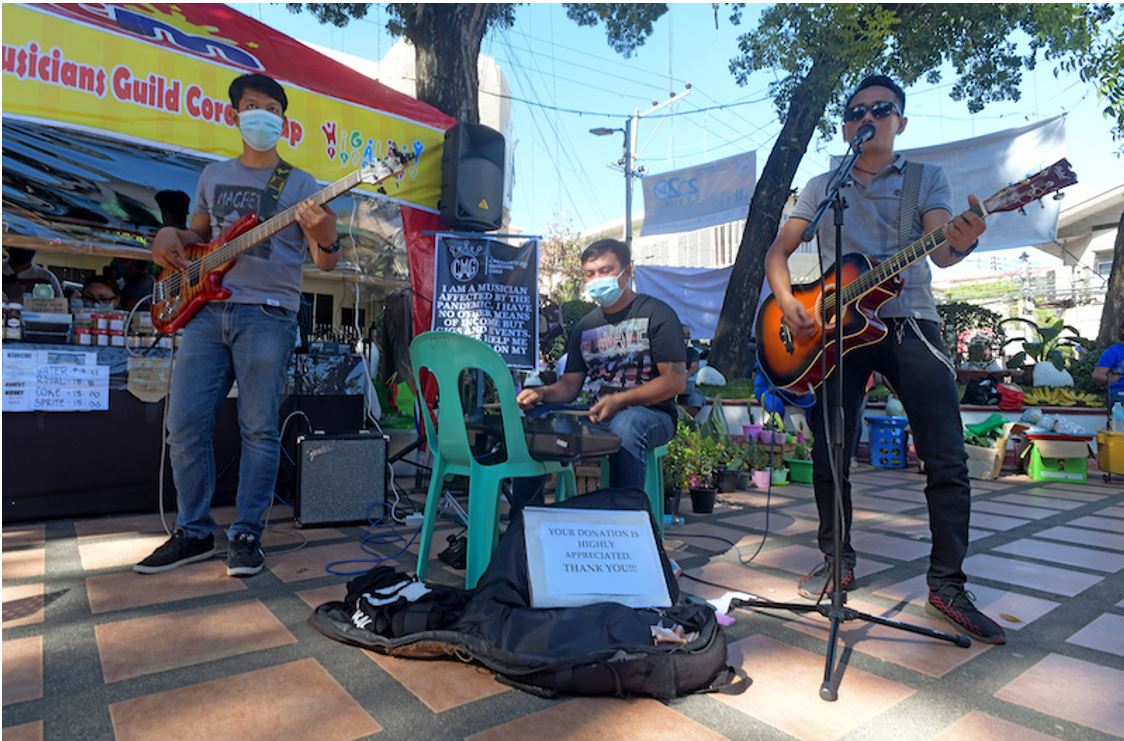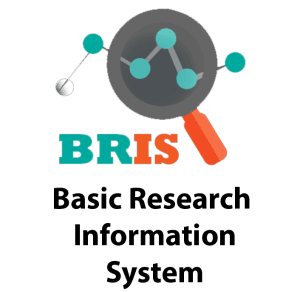
In its efforts towards a more inclusive research ecosystem in the country, the National Research Council of the Philippines (NRCP) – Research and Development Leadership (RDLead) Program presented the key accomplishments to its various stakeholders during the 3rd RDLead Year-end Conference and Assembly at the Bayleaf Hotel, Intramuros Manila last December 13, 2022.
Now covering all 17 regions of the Philippines, the RDLead Program supported institutions in the country through capacity development. To date, it has engaged 75 RD Leaders in 72 institutions across the country.
Of the 72 institutions assisted by the program, 23 are considered new to the DOST. The new institutions represent 12 regions in the country. New institutions are those that have not received research funding from the DOST and/or its attached funding agencies based on the report covering the period 2014 – 2019.
These new institutions are the following:
- Philippine Military Academy (PMA) – CAR
- North Luzon Adventist College (NLAC) – REGION I
- Ilocos Sur Polytechnic State College (ISPSC) – REGION I
- Northwestern University (NWU) – REGION XIII
- Batanes State College (BSC) – REGION II
- Tarlac State University (TSU) – REGION III
- Universidad de Manila (UDM) – NCR
- Marikina Polytechnic College (MPC) – NCR
- Navotas Polytechnic College (NPC) -NCR
- Pateros Technological College (PTC) – NCR
- Pamantasan ng Lungsod ng Marikina (PLMar) – NCR
- City of Malabon University (CMU) – NCR
- University of Perpetual Help – Dr. Joes G. Tamayo Medical University (UPHS – DJGTMU) – REGION IV A
- Philippine Air Force – Air Education Training Doctrine Command (PAF – AETDC) – REGION IV A
- Pamantasan ng Cabuyao (PnC) – REGION IV A
- Northern Iloilo State University (NISU) – REGION VI
- Biliran Province State University (BiPSU) – REGION VIII
- Leyte Normal University (LNU) – REGION VIII
- University of Science and Technology in Southern Philippines (USTP) – Claveria – REGION – X
- Northwestern Mindanao State College of Science and Technology (NMSCST) – REGION – X
- Philippine Women’s College (PWC) – REIGION XI
- Saint Joseph Institute of Technology (SJIT) – REGION XIII
- Tawi-Tawi Regional Agricultural College (TRAC) – BARMM
Of the 23 new institutions, 12 have already secured approval or received funding to start pursuing research and development amounting to approximately PhP 152.4 million from DOST and other external funding agencies.
List of the institutions with the respective funding approval they have secured / received:
- North Luzon Adventist College (NLAC) – 0.2 M
- Ilocos Sur Polytechnic State College (ISPSC) – 0.2 M; 5 M
- Batanes State College (BSC) – 5 M
- Tarlac State University (TSU) – 2.5 M; 100 M
- Marikina Polytechnic College (MPC) – 5 M
- Philippine Air Force – Air Education Training Doctrine Command (PAF – AETDC) – 0.7 M
- Pamantasan ng Cabuyao (PnC) – 5 M
- Northern Iloilo State University (NISU) – 2.5 M; 1.9 M
- Biliran Province State University (BiPSU) – 5 M
- University of Science and Technology in Southern Philippines (USTP) – Claveria – 13.4 M
- Philippine Women’s College (PWC) – 5 M
- Tawi-Tawi Regional Agricultural College (TRAC) – 1 M
Moreover, six (6) higher education institutions (HEIs) have secured Php 35 million worth of grants for the establishment and/or upgrading of their laboratory facilities for research. Three (3) of these HEIs are new (ISPSC, MPC, PnC). Joining the three in the list of laboratory grant recipients are Bulacan State University (BulSU),, Partido State University (PSU), and Capiz State University (CapSU). The laboratory establishment / upgrade grants all came from the Institutional Development Program (IDP) of the Philippine Council for Industry Energy and Emerging Technology Research and Development (PCIEERD) of the DOST.
Aside from grants secured by new institutions and IDP grants, four (4) of the approved NICERs (Niche Centers in the Regions) were also assisted by the RDLead program in their proposal development phase. Cumulatively, these NICERs secured a total Php 192.5 million worth of research grants from the DOST Science for Change Program (S4CP). These NICERs Mindanao State University-Naawan Sea Cucumber Research and Development Center, Sultan Kudarat State University (SKSU) Halal Goat Research and Development Center, Mindanao State University – Tawi-Tawi College of Technology and Oceanography (MSU Tawi-Tawi) Seaweed Research and Development Center, and the Camarines Norte State College (CNSC) Queen Pineapple Research and Development Center.
In addition to helping institutions in developing their NICER proposals for funding, eight (8) approved NICERs were assisted in technical capacity development. These are the (1) University of the Philippines Manila (UPM) Center for Innovations for Disaster Risk Response and Management in Health , Rizal Technological University (RTU) Center for Astronomy Research and Development, University of the Philippines Cebu (UP Cebu) Center for Environmental Informatics, Ateneo De Davao (ADDU) Mindanao Renewable Energy Center, Isabela State University Smart Water Infrastructure and Management Center, University of the Philippines Visayas (UPV) Center for Mollusk Research and Development, Cebu Technological University (CTU) Center for Flora and Fauna Biodiversity, and Samar State University (SSU) Eastern Visayas Center for Crustacean Research and Development
Apart from helping institutions secure external funding, the RDLead has also helped capacitate the research in developing manuscripts for publication. To date, around 50 journal articles and conferences have been accepted and/or published were generated from the RDLead engagements along with field guides, training manuals, patent applications, and others.
Lastly, to help ensure that the RDLead engagements are sustained even after completion, the NRCP worked on encouraging qualified researchers from RDLead-assisted institutions to apply for NRCP membership so they can continue having access to information, updates, and opportunities from the NRCP and the DOST. From January to July 2022 alone, a total of 281 generated applications were already recorded.
Written by Anel Azel Dimaano





















